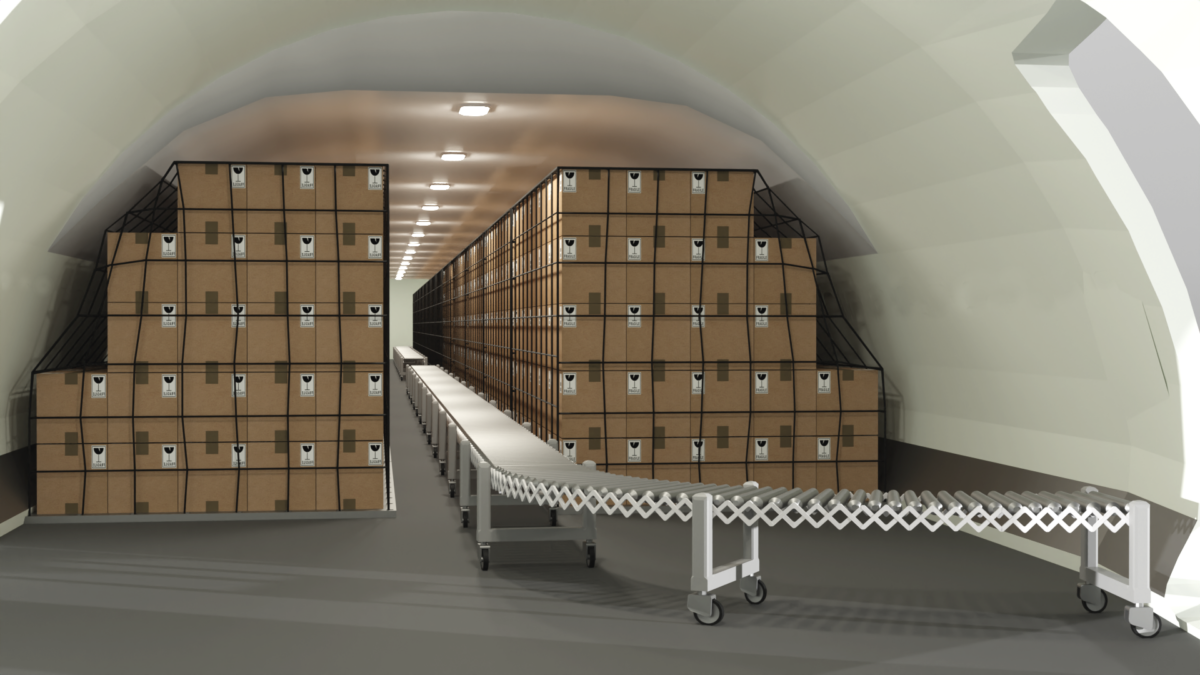French aviation services company Vallair is offering to partially reconfigure used Airbus A330-300 passenger aircraft for cargo duty as a faster, cheaper alternative to heavy-duty conversions amid multiyear backlogs for production slots at overhaul facilities. It’s a shortcut also being tried by a handful of other companies aimed at light e-commerce shipments that can be loaded in the cabin without extra support beams in the floor.
Vallair and UUDS, a Paris-based aircraft maintenance and repair organization, said they are jointly investing in a new business to modify the main deck by removing the galley, seats and overhead bins and adding a cockpit barrier, a cargo tie-down system and fire detection system. The cargo aircraft will provide about 66 tons of payload at a range of 4,200 nautical miles.
Avoiding a full-blown conversion, complete with a new cargo door and structural reinforcement for large containers, saves millions of dollars and time. Changing an A330 aircraft to a Class E widebody freighter takes a month, compared to about six months for a full teardown, at about a quarter of the cost, according to Vallair and other conversion shops.
Vallair will devote space at its new multipurpose hangar in Châteauroux for quick-change conversions. UUDS will carry out the modifications once European Union regulators certify its design for a semipermanent cabin makeover is safe for commercial flight, which officials say could happen within two months.
The first two A330 modifications are committed to Deucalion Aviation Ltd., an aircraft management and investment company, and are already in southern France awaiting conversion. The companies didn’t disclose the end user.
The COVID crisis prompted the European Union Aviation Safety Agency and the Federal Aviation Administration to temporarily waive design requirements for modifying passenger cabins as an emergency measure so airlines could move critical medical and other supplies when the global economy was bottled up. The FAA exemption has expired and EASA’s exception expires at the end of July. The new certification will allow the light-duty freighter to fly beyond the current deadline.
A330 freighters gain value
Interest in passenger-to-freighter conversions has surged since the start of COVID-19 in 2020 because of the shortage of freighter capacity and projections for strong compound annual cargo growth. The A330-300 has garnered extensive attention in the past year because there is a large supply of relatively young aircraft at lower valuations after airlines bent on cutting costs parked many units and because the number of available Boeing 767s, the most popular freighter in the medium widebody category, is starting to dwindle. Airbus affiliate Elbe Flugzeugwerke has ramped up production capacity and Israel Aircraft Industries last year launched an A330 conversion program.
Other companies are going with a “soft” conversion approach to limit the amount of upfront investment and more quickly capitalize on strong shipping demand, while retaining the flexibility to flip back to passenger configuration if market conditions change. AELF Flight Service, a charter and leasing company that temporarily used passenger aircraft in cargo-only mode under temporary government exemptions, wants to use an Avensis Aviation design for semipermanent cabin conversions of A330-300 aircraft. Avensis is waiting for its supplemental type certificate to be approved by the EASA. Eastern Airlines is working on a plan to retrofit up to 35 Boeing 777 with a Class E cargo compartment marketed to retailers with lightweight e-commerce goods.
Lessors have increasingly turned to cargo conversions to keep assets flying longer and generating returns. Vallair and UUDS said the flexibility to change the configuration between passenger and cargo use makes the aircraft more versatile.
Transferring cargo in and out of a passenger compartment is more labor intensive and time consuming than in pure freighters where large containers are moved into place by hydraulic lift machinery and roller systems.

Vallair said its light freighter configuration will use conveyors placed on the top level to facilitate loading and unloading.
“This solution addresses current market needs and increases the value of the asset because it is completely reversible should the market change,” said Vallair founder and CEO Grégoire Lebigot in a press release. “The aircraft can easily be converted back to passenger configuration or transformed into a freighter with a large cargo door in future. It is a complementary alternative solution to the traditional freighter conversion, not a replacement.”
Vallair said its new Châteauroux hangar can accommodate two A330 aircraft or one A330 and up to three A321s, allowing it to provide both wide- and narrow-body maintenance, conversion and other airframe services.
Vallair, which also has facilities in Luxembourg and Montpellier, France, was the first customer for EFW’s new Airbus A321 narrow-body freighter conversion.
Click here for more FreightWaves/American Shipper stories by Eric Kulisch.
RECOMMENDED READING:
Charter airline to expand cargo business with light-duty freighters
Flexport to launch Eastern Airlines’ 777 express freighter service







